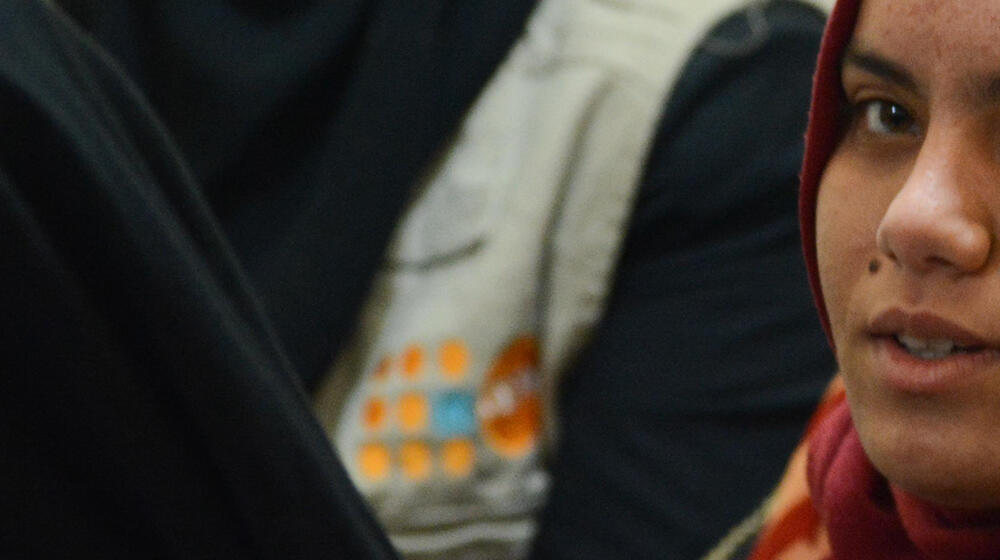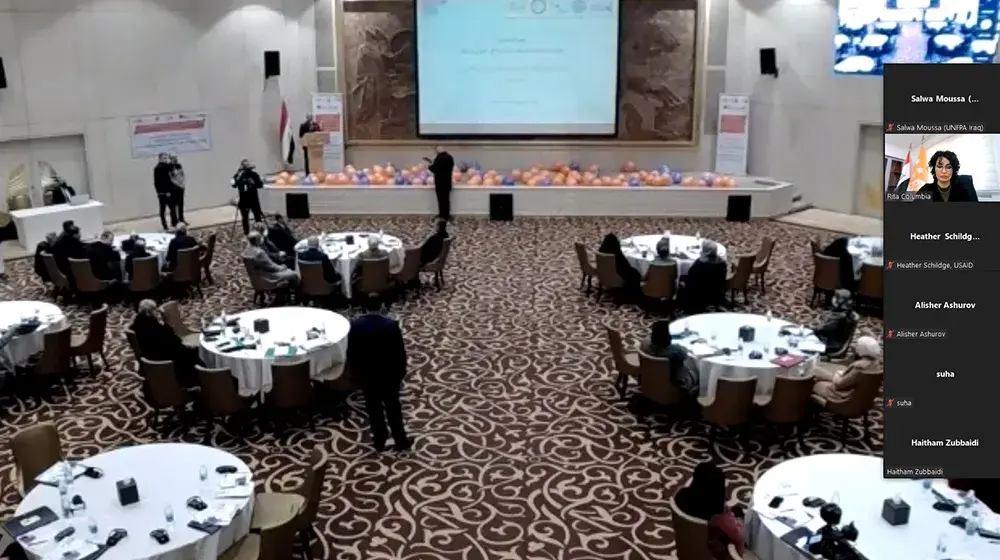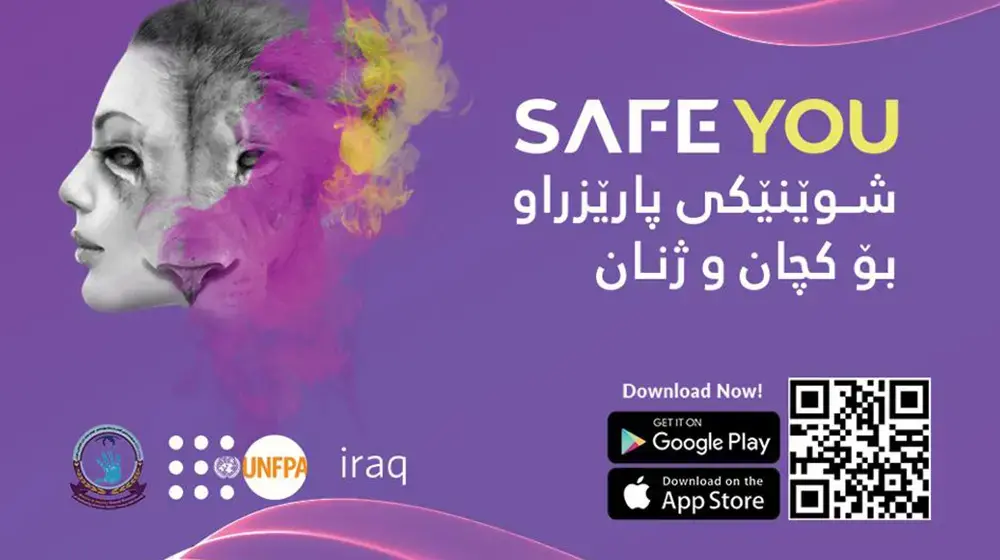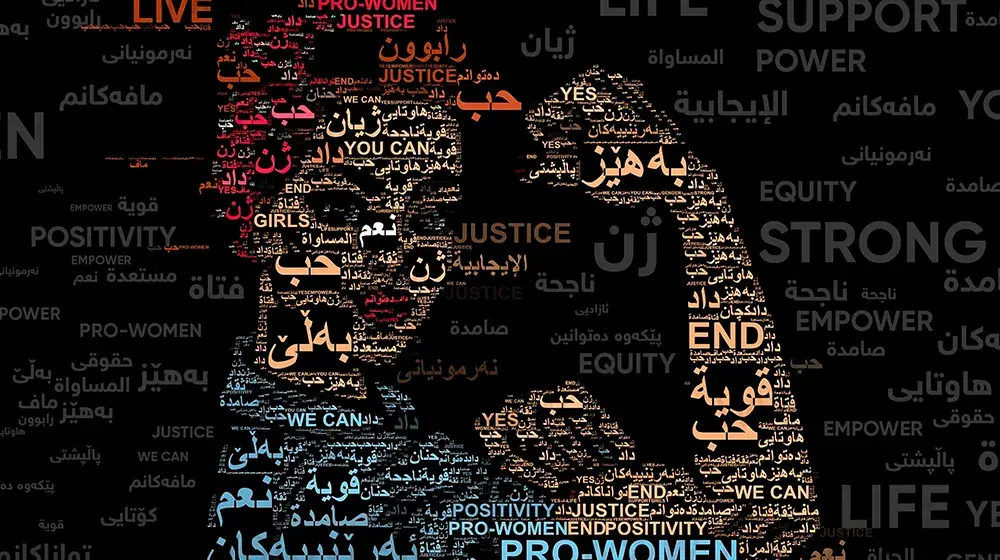“My name is Maya*. I’m a Syrian refugee from Al-Hasakah. I have been living in Domiz 1 refugee camp in the Kurdistan Region of Iraq for about 8 years. I did not complete my education — only primary school — and I am currently jobless.
I am married and I live with my husband, his other wife, and our five children, three of whom are mine. He works as a day labourer and earns a living.
I had heard about the UNFPA-supported Safe Space and managed to get the location from my neighbour. I met the case manager, who recommended that I participate in the Women’s Committee, sports training, and hairdressing to widen my social circle and feel empowered.
At first, I was too afraid to ask for help and tell my story to people I don’t know. The staff at the Safe Space were nice to me, and they explained to me the services they provide. This encouraged me to make an appointment with the social worker. In my interview with her, after greeting an acquaintance, I began to explain to her that I needed help. She suggested that she refer me to the case manager whom I saw when I was first received.
I agreed and made an appointment. This time, I was more comfortable, because I had made several visits to the space, but there was still tension over how to narrate the subject. We entered a listening room where there was a table with two cups of water and a box of tissues, in addition to two chairs facing each other. She asked if I was comfortable, then asked what drew my attention in the room. As simple as it was, this small interaction helped relieve my tension.
I told her about my relationship with my husband and his neglect of me. My story began with my marriage, in which I never truly felt like I had a life partner. Even though he was the provider, he never gave me enough money to cover my personal needs. I was constantly neglected. This worsened when I was pregnant with my youngest daughter, which is when he started hitting me and insulting me. I still deeply remember the details of each stage of this transition.
I was dying inside, at every moment of every day, but I had no choice but to stay for the sake of my children. I told the case manager that, of all his damaging behaviour, the insults were the most hurtful, and they came at every opportunity. I could not stand his looks, especially as he neglected the intimacy between us, which made it all worse. I found out later that he wanted to marry another woman. That was hard for me.
After several sessions with the case manager, I began to feel better, as if a weight was slowly falling off my shoulders. I learned breathing exercises and relaxation techniques and applied them myself. These helped me, especially since there was not much I could do at that point and I did not want to pursue any legal measures, despite the abuse. More importantly, he had stopped hitting me after he got married again.
My participation began with training with a women’s committee. It was a wonderful programme that lasted several sessions, through which I learned to make decisions, and to dare to claim my rights. I also chose gymnastics and hairdressing, which really worked for me, as I got to know other women and learn a variety of skills and techniques that boosted my self-confidence.
I felt empowered. I was able to ask my husband about my needs, in addition to becoming more social and having friends, and I had information about service providers in the camp if I needed them. Now I want to develop myself in the field of make-up artistry and, if I get the chance, I will open my own salon.
This is my plan for the future. This was an opportunity to tell my story, as I wanted to be a role model for women. Seek help if you are experiencing any kind of harm. Don’t succumb to the circumstances that destroy you".
The women centres in camps for refugees supported by UNFPA are funded by Norway, Sweden, and the Central Emergency Response Fund(CERF).
*name changed for protection reasons





